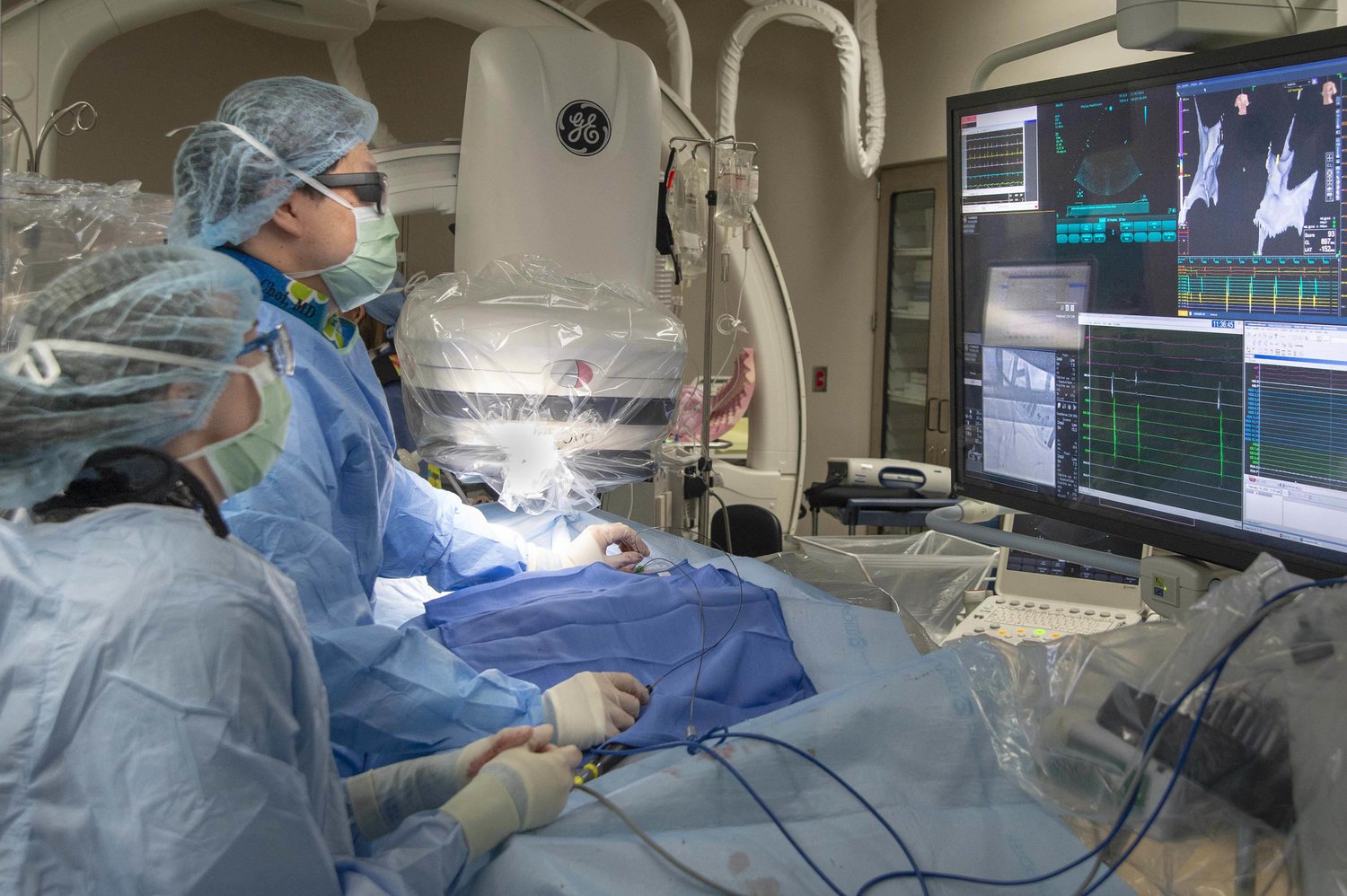Electrophysiology Study (EPS) is a specialised cardiac diagnostic procedure that provides a detailed analysis of the electrical activity within the heart. This helps to determine the cause of abnormal or irregular heart rhythms. This can help guide treatment for abnormal heart rhythms.
Electrophysiology Study
The heart’s electrical system produces signals that control the timing of the heartbeats. During an EP study, a detailed map of how these signals move between each heartbeat is created. By studying these signals your doctor can tell if and where there is abnormality in your heart signals, which allows for more targeted treatment of the abnormal heart rhythm.
What Is Electrophysiology Study
An EPS procedure uses thin, flexible catheters inserted through blood vessels and into the heart chambers. These catheters record electrical signals, allowing cardiologists to analyze the heart’s conduction system and identify any irregularities or arrhythmias. Controlled arrhythmias may be induced during the study to better understand their origin and characteristics.
Who Needs Electrophysiology Study?
EPS is recommended for individuals who experience symptoms or have conditions indicative of arrhythmias or abnormal heart rhythms, such as:
- Unexplained palpitations or irregular heartbeats
- Fainting or near-fainting episodes related to abnormal heart rhythms
- Known arrhythmias requiring further characterization and mapping
- Atrial fibrillation, especially with suboptimal medication response
- Individuals considering cardiac device implantation like pacemakers or defibrillators
- Recurrent episodes of fast heart rates (tachycardia) requiring further evaluation
- Patients at risk of sudden cardiac death or with conditions requiring risk stratification
- Individuals with structural heart diseases that may contribute to arrhythmias
- Those who may benefit from catheter ablation, a procedure to treat certain arrhythmias
- Individuals for whom the origin and characteristics of an arrhythmia need clarification
How Do I Prepare For Electrophysiology Study?
Before your EP study, your doctor will inform you if any medications need to be witheld prior to the study. Do not eat or drink anything after midnight on the day of the EPS. Prepare a list of the medications you normally take. Wear comfortable clothes, and arrange for someone to drive you to the hospital as you will likely receive sedation. Don’t hesitate to ask your doctor any questions you have and address any concerns.
What Happens During Electrophysiology Study?
Before an EPS you will have a small tube (cannula) inserted into a vein in your arm. Small patches or electrodes are placed on the chest to monitor the heartbeat during the study. During the study, you’ll lie comfortably on an examination table while thin, flexible tubes called catheters are inserted through blood vessels in your leg and guided up to your heart using X-rays. These catheters record your heart’s electrical signals like tiny microphones. You’ll receive medication to keep you comfortable, and the doctor may briefly trigger or assess arrhythmias as part of the investigation. In some cases, a procedure called catheter ablation may be performed to eliminate the source of the arrhythmia. Throughout the study, your healthcare team will monitor you closely and gather information. Once they have everything they need, the catheters are removed, and you’ll be observed for a while during recovery.
What To Do After Electrophysiology Study?
After your EP study, you’ll rest in a recovery area while your healthcare team monitors you. They’ll provide specific instructions on caring for the catheter insertion site and limiting strenuous activities. Be sure to take your medications as prescribed and attend all follow-up appointments. Your doctor will discuss the study’s findings and outline your treatment plan. You may feel a little soreness for a few days where the catheters were inserted, but you can gradually return to your normal activities. If you have any concerns, don’t hesitate to contact your healthcare team.
Are there any risks associated with performing an Electrophysiology Study?
Performing an EP study is generally safe, but as with any invasive procedure or test there is a small risk of complications which can include bleeding or bruising at the catheter insertion site, bleeding around the heart caused by damage to heart tissue, damage to heart valves or vessels, damage to the hear’s electrical system which may require a pacemaker to correct and formation of blood clots in the legs or lungs. Every precaution is taken to reduce the occurrence of such complications.






